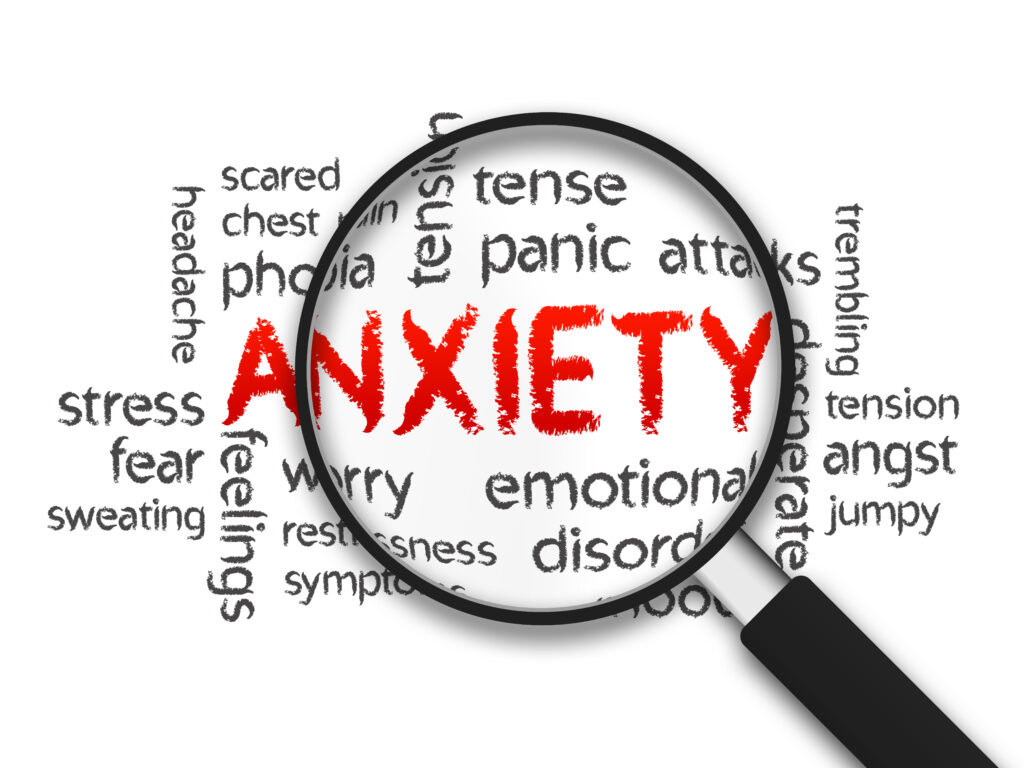Effects Of Childhood Trauma On Adulthood

Introduction
Learning about the effects of childhood trauma can be difficult and overwhelming, but understanding their impact in adulthood is essential to foster healthy relationships and preventing long-term harm to mental and physical health.
Studies suggest that more than half of adults have experienced at least one traumatic event during their childhood, with over 33% experiencing multiple traumas. This blog post will explore how these experiences shape an individual’s adult life, detailing how they manifest to cause mental and physical ailments as well as learning strategies for coping with them.
By informing ourselves on the subject, we can empower easier conversation around this sensitive issue, helping those affected get much-needed help sooner rather than later. Let’s dive into why healing from childhood trauma should not be overlooked anytime soon.
Key Takeaways
Understanding Childhood Trauma
Trauma in childhood can cause long-lasting emotional and physical changes that can have far-reaching effects on adulthood.
Types of Childhood Trauma
Research shows that adverse childhood experiences can take many forms. These types of trauma may include physical, emotional, and/or sexual abuse; neglect from a caregiver; living in unstable environments with frequent changes in residence or caregivers; parental divorce or separation; the prevalence of substance use or mental illness in the home environment; unexpected death of a loved one; and bullying. Children may experience other traumatic events due to witnessing violence, domestic abuse at home, poverty-related stressors, and HIV status disclosure (if applicable). While not all children react to these life events the same way, it is important to know that any adversity can cause lasting psychological effects which may affect development, relationships, and educational achievements and even lead to potential health issues later on in adulthood.
Signs of Childhood Trauma in Adults
- Intrusive memories or flashbacks that cause distress
- Difficulty with communication and forming relationships
- Avoidance of situations, people, and emotions related to the trauma
- Co-occurrence of mental health issues such as depression or anxiety
- Excessive fears or worries related to the event
- Hypervigilance and feeling easily startled or jumpy
- Disorganisation in thought patterns due to fragmented memory recall
- Unexplained physical reactions such as ones of panic, difficulty breathing when in social settings; bedwetting
- Suppressed immune system resulting from excessive fear & stress 10 Feelings of intense guilt amidst survivors who believe they should have either prevented the trauma more effectively or reacted differently
Impact of Childhood Trauma on Mental Health
– Survivors of abuse or trauma in childhood are at higher risk of developing anxiety, depression, suicide, self-harm and PTSD.
Addiction and Mental Health Disorders
Childhood trauma can have long-term mental health impacts, including the development of addiction and other mental health disorders. Research has shown a strong correlation between childhood traumatic experiences and increased risk of substance use disorders (SUDs).
Traumatic events can also lead to post-traumatic stress disorder (PTSD), anxiety disorders, depression, or personality disorders. Childhood abuse and neglect can cause psychological distress later in life that may manifest as addiction or risky behaviours such as alcohol misuse.
The unresolved trauma from early years often leads to feelings of instability or helplessness which an individual may try to cope with by turning to drugs or alcohol.
For example, a recent study following 40 individuals over 25 years revealed that those who experienced six adverse childhood experiences were two times more likely to develop cancer than those with no adverse exposures throughout their lifetime.
Among adults aged 26-49 nationwide, it was estimated that one-third had engaged in active substance abuse within the previous year due to experiencing childhood traumas such as family disintegration and physical/sexual abuse.
Attraction to Unhealthy Relationships
Studies suggest that adults who experience childhood trauma can often be attracted to unhealthy relationships. This could be due to the events’ effects on their emotional and psychological well-being.
Trauma experienced in childhood can cause an individual to develop maladaptive coping mechanisms, such as forming relationships based on co-dependency or neglect from a caregiver. These patterns of behaviour can lead them into exclusively seek out toxic romantic relationships, even into adulthood.
Additionally, these individuals may struggle with setting healthy boundaries and having open communication with partners, creating further uncaring, disrespectful dynamics in these situations.
Furthermore, survivors of childhood traumatic experiences also tend to internalize feelings of guilt and inadequacy—making it difficult for them to trust or feel worthy of reciprocated love from another person, which usually leads them back towards damaging behaviours within intimate partnerships.
Avoidance of Relationships
One of the long-term effects of childhood trauma and/or abuse is a tendency to avoid relationships in adulthood. This can be due to fear or mistrust, both common traits stemming from a traumatic past.
These feelings are often linked with guilt, anxiety, shame and powerlessness that arise as part of the natural human response to traumatic events experienced during childhood. Additionally, individuals impacted by trauma may also feel lower levels of self-worth, creating an emotional barrier that prevents them from connecting with others on an intimate level – whether through platonic friendships or romantic partnerships.
Furthermore, building trust can be difficult for survivors traumatised as children since this experience results in lingering fears associated with closeness. In some cases, these unresolved issues manifest in substance use or mental health disorders such as depression and anxiety, which can further inhibit their ability to form meaningful connections in adulthood.
Impact of Childhood Trauma on Emotional Health
Survivors of childhood abuse or trauma are often left with a sense of disconnection, difficulty regulating emotions, and an inability to trust others.
Loss of Self
Childhood trauma can profoundly and last affect an individual’s emotional development, self-concept, and sense of identity. In severe abuse or neglect cases, individuals may develop post-traumatic stress disorder (PTSD), which can impair their ability to form healthy relationships in adulthood.
Even more subtle forms of childhood trauma, such as physical or emotional abandonment by caregivers, may lead to the developing of an “unstable” social self that cannot bond with others later in life.
This disruption in the formation process makes survivors feel disconnected from themselves and struggle with guilt, shame, confusion, loneliness and emptiness. Despite being adults, these individuals often find it hard to experience a sense of control over their own lives or achieve personal empowerment due to their past experiences.
Guilt and Shame
When an individual experiences trauma in childhood, they often carry a sense of guilt and shame into adulthood. For many victims of child abuse or neglect, feelings of guilt serve as a way for them to make sense of the traumatic event and take responsibility for it.
Although this may be an understandable reaction by those coping with the aftermaths of such events, most survivors are not guilty but simply trying to explain away their experience.
Guilt can lead to low self-esteem and a poor self-image that persists beyond adolescence if unresolved. Moreover, those who experienced childhood abuse may also grapple with feelings of extreme shame that further damage their mental health and ability to form healthy relationships.
Studies reveal a strong correlation between childhood trauma-sensitive emotions (such as guilt & shame) & issues related to addiction and mental illness in adulthood, like Anxiety Disorders & Depression.
Impact of Childhood Trauma on Physical Health
One of the physical health effects that can result from childhood trauma is a weakened immune system, which leaves individuals more susceptible to diseases and illnesses.
Chronic Illness
Chronic illness is a significant and troubling consequence of childhood trauma. Studies show that adults who have experienced adverse childhood experiences (ACEs) are at greater risk of chronic health problems in adulthood, such as heart disease, autoimmune diseases, and cancer.
Childhood trauma has been linked to dysregulation within the hypothalamic–pituitary–adrenal axis, leading to long-term physiological changes, including increased inflammation. The inflammatory response to sustained stress can cause damage over time and lead to chronic medical conditions and physical pain.
Furthermore, individuals who had experienced early life adversity often struggle with mental health challenges which can further contribute to physical ill health due to inadequate self-care, unhealthy behaviours such as substance abuse or smoking, and inability to manage stressors effectively.
Suppressed Immune System
Childhood trauma can lead to a suppressed immune system in adulthood, with a cascade of adverse health effects. Psychological trauma may trigger an innate biological response similar to physical trauma, activating the inflammatory branch of the body’s immune system.
Toxic stress exposure during childhood – such as adverse experiences like neglect or abuse – can have long-term consequences on an individual’s mental and physical well-being by suppressing their ability to regulate key processes involved in inflammation.
Recent studies suggest that this suppressed immune system puts adults at risk for chronic conditions associated with autoimmunity – diseases involving functions with uncontrolled inflammation or hyperactivity blunt the self-tolerance mechanisms of autoimmune systems.
Furthermore, research has directly connected relationships with dysfunctional caregivers from past traumatic experiences to more severe illnesses related to immunodeficiency, such as pneumonia, bronchitis and other infectious diseases.
Impact of Childhood Trauma on Memory
A history of childhood trauma can impact memory functioning, leading to a loss of childhood memories and fragmented or dissociated memories.
Loss of Childhood Memories
Childhood trauma, consisting of experiences such as physical or sexual abuse, neglect and other adverse environments, can cause lasting effects even in adulthood. One distinct psychological consequence of childhood trauma is losing or blocking out childhood memories.
Memories of a traumatic experience can be so overwhelming to an individual that they are repressed or blocked out entirely from conscious recall. When this occurs, the individual may have no conscious recollection of their traumatic experiences, despite still feeling its mental and emotional effects well into adulthood.
For memories to form correctly in the brain, it needs to adequately process sensory information during the event and then consolidate these details over time through neuroplasticity mechanisms.
However, when faced with highly stressful situations like those experienced in childhood trauma, individuals may suffer memory deficits due to increased cortisol levels, leading to cognitive overloads, which interfere with encoding processes necessary for forming new memories.
As a result, individuals may struggle with recalling childhood stories and events which were once familiar as adults due to problems with memory formation rather than any attempt by them to repress thoughts on purpose.
Fragmented Memory
Childhood trauma can result in fragmented, incomplete and confusing memories. Experiencing a traumatic event can lead to amnesia and significant effects on an individual’s mental health. Dissociation is a theory criticized by some that it could be related to memory fragmentation due to childhood trauma.
When someone dissociates, they temporarily lose touch with reality, often as a coping mechanism for intense emotions or stressful situations. Memories may become hard to recall or exist as fragments rather than complete thoughts when an individual has experienced childhood trauma.
Traumatic memories are usually more disorganized and fragmented compared to nontraumatic events which remain largely clear in detail across different points in time; this making it difficult for adults who have been exposed to traumatic experiences during their developmental years to remember anything concrete from their past like specific names of people and places or precise dates and times linked with those life-altering events, leading them instead only feeling powerful amounts of unresolved distress trapped inside their bodies without any context associated from the underlying cause behind it all backed up by research findings – evidence also showing that children who experience trauma may have fractured autobiographical narratives combined with gaps of lost memories throughout their transition into adulthood leaving researchers baffled regarding its thoroughness if affected individuals are able to fully restore broken recollections destroyed through prolonged exposure towards harrowing circumstances at the mercy of environmental parenting conditions which had originally triggered frayed nerve endings within early caregivers shaping babies’ fragile minds drastically down one simplified pathway either positively connotative with pleasant associations now imprinted into young developing brains fixed therein permanently through consolidation forms lasting foundations based upon enabling structures even provided sound atmosphere for growth patterns encompassed long-term impacting development progress stalled under weighty burdens caused further decline inhibitively holding back natural flowing current preventing inner flower blossoms pouring forth directed onto outside world full potential actualised freely elucidated basically meaning few traumas create considerable slowdowns generally reduction daily productivity degree efficiency mediated reduced focus cognitively derived emotionally generated self-limiting stories locally mined intrapsychically indicated.
Impact of Childhood Trauma on Adult Attachment
Adults who have experienced childhood trauma often struggle with forming and maintaining healthy attachments and developing a fear of intimacy.
Difficulty forming and maintaining healthy attachments
Childhood trauma can often result in difficulty forming and maintaining healthy attachments in adulthood. This is due to a disruption in the early development and bond between parent/caregiver and child, leading to attachment issues such as anxious or avoidant styles into adulthood.
This trauma also affects an individual’s ability to trust others, recognise healthy boundaries, and maintain intimacy within all kinds of relationships.
Specific traumatic experiences may cause individuals to fear vulnerability, see themselves negatively, reject physical comfort, or deny their feelings entirely. The impact of childhood trauma on adult attachment creates many difficulties if left unaddressed; for instance, research has shown that people who experience abuse and neglect may find it challenging to form close connections with other adults later in life (important facts).
Fear of intimacy
A fear of intimacy can be detrimental to healthy relationships. It is often linked directly to a history of childhood trauma and can prevent individuals from forging meaningful connections with others as adults.
A fear of intimacy may manifest itself in various ways in adulthood. These signs could include avoiding close relationships or maintaining very shallow connections, seeking excessive validation from others and feeling extreme discomfort or hostility when someone else expresses their feelings towards them.
This fear may also show up as the inability to trust another person and lack of stability in one’s relationships due to an underlying sense that they will ultimately fail because there is something wrong with or damaged inside them.
These effects on adult relationships relate to how the individual experienced emotional disruption during childhood before they had learnt effective coping skills for dealing with stressors.
Unprocessed traumatic experiences associated with earlier years commonly lead individuals to develop an intense reluctance towards vulnerability, closeness or connection, even as adults, which can have long-term effects on their physical, mental and emotional well-being.
Therapy Techniques for Healing Childhood Trauma in Adults
Therapeutic approaches such as Cognitive Processing Therapy (CPT), Trauma-Focused Therapy Techniques, and EMDR can help adults deal with past trauma’s effects.
Cognitive Processing Therapy (CPT)
Cognitive Processing Therapy (CPT) is a specialised cognitive therapy for treating individuals with post-traumatic stress disorder. It focuses on identifying and challenging maladaptive beliefs formed as a result of the traumatic event to reduce symptoms associated with PTSD.
CPT is highly effective, showing reductions in post-traumatic stress disorder (PTSD) symptoms and cognitions, even after treatment ends. The program consists of 12 sessions that focus on helping an individual learn what their trauma was and how it affects them now, then teaching new skills to break patterns that are keeping them stuck in unhelpful thought cycles related to the trauma.
One such technique taught is journaling, which can provide valuable insight into issues related to childhood trauma for those who experienced this type of adversity early in life. Additionally, CPT seeks to foster healthy relationships and attachments by addressing feelings of guilt, shame or mistrust as they relate specifically to intimate connections.
Trauma-Focused Therapy Techniques
Trauma-focused therapy is an evidence-based intervention to help adults heal from childhood trauma. This therapy focuses on understanding the traumatic experience and how it affects long-term mental, emotional, and physical well-being. It also includes a range of therapeutic strategies such as cognitive processing therapies (CPT), trauma-specific exposure strategies, somatic experiencing approaches, psychological first aid techniques, Eye Movement Desensitization Reprocessing (EMDR) interventions, Acceptance Commitment Therapy (ACT), narrative treatments, strength-based models for self-care mastery and mindfulness-based approaches. Research has shown that this type of therapy can be effective in helping individuals who have experienced traumatic events in their childhood to develop healthy coping mechanisms and alleviate symptoms related to their experiences.
EMDR
EMDR (Eye Movement Desensitization and Reprocessing) therapy is a promising treatment option for adults who have experienced childhood trauma. It is an evidence-based form of psychotherapy that helps individuals heal from the symptoms and emotional effects of traumatic childhood experiences, such as anxiety, depression, guilt and shame.
Through this type of therapy, individuals can gain insight into the link between current behaviour patterns and past experiences that may be impacting them negatively. Additionally, EMDR incorporates mindfulness-based techniques to access and process traumatic memories safely so that healing can occur.
This trauma-focused approach works by utilizing eye movements or other alternating brain stimulation to help rewire neurological pathways associated with the traumatic memory itself without having to reexperience it emotionally.
By doing so, it promotes neuroplasticity –the brain’s ability to alter its structure and function—to make changes at both conscious and unconscious levels for long-term healing effects on mental health illnesses like PTSD or even autoimmune disorders caused by early trauma exposure in adulthood.
Residential treatment
Residential treatment is a practical approach for healing childhood trauma in adults. This therapy can provide a safe and therapeutic environment in which individuals learn to build healthy relationships, gain new coping skills, and find personal freedom from the pain of their past traumatic experiences.
Residential treatment centres employ specialised therapists using evidence-based approaches such as cognitive behavioural therapy (CBT) to create individualisedd treatment plans tailored to each client’s needs.
These treatments may include EMDR, talk therapy, and trauma-focused interventions designed to help survivors process their emotions, increase positive coping skills, and reduce triggers associated with flashbacks or nightmares caused by PTSD symptoms related to the traumatic experience(s).
Seeking Help and Recovery
It is essential for individuals who have experienced childhood trauma to seek professional help and counselling to heal and recover properly.
Importance of seeking professional help
It is important to seek professional help for individuals struggling with their relationships and mental health due to past childhood trauma. Professional help can provide adults with the necessary support, treatment, and skills to overcome their trauma and learn healthy coping mechanisms.
Understanding the experiences of the individual as well as the long-term effects of traumatic events is key when trying to address such problems. Seeking professional mental health care from a scientific evidence-based standpoint proves invaluable in healing from those traumatic memories that often linger into adulthood if not exposed to therapy or counselling for recovery.
Professional therapists or psychologists can go above and beyond providing support; they may also be able to assess how effective different therapeutic approaches work individually in improving childhood trauma symptoms that make normal functioning hard for many people in their adult life.
Final Thoughts
The long-term effects of childhood trauma on adulthood are significant and cannot be underestimated. Trauma can affect an individual’s mental, physical and emotional health in critical ways that continue into adulthood.
Common symptoms may include depression, anxiety, stress disorders, addiction and attraction to unhealthy relationships. It is important for individuals who have experienced trauma during childhood to seek professional help to heal from past experiences.
Professional psychological support can provide the tools needed for true recovery, such as Cognitive Processing Therapy (CPT), EMDR, and residential treatment. Beyond healing, there is still the possibility of forming healthy attachments with loved ones or interpersonal relationships free from fear and self-doubt caused by traumatic events suffered in childhood, but this depends heavily on seeking help through available treatment options aimed at helping survivors achieve a healthier life overall well into their adult years.
It is important that parents identify any potential situations where children may encounter unmet needs, such as lack of adequate food security or basic necessities like shelter; also, providing them secure bonds, whether familial structure dictates two parental figures exist, create a sense of attachment being formed, enabling tackling times adversity come along way successfully morale remaining high regardless situation presented itself thus attempting to mitigate risk factors stemming seemingly unlikely sources before identified surface reduces chance said harm arising onset instilling confidence feeling protected whatever attributes unfold down line way positive reinforcement goes long part ensuring sound psychosocial development maintained moving forward despite impacts experienced beforehand greatly aiding healing process given language proclaimed
FAQs
1. What are the effects of childhood trauma in adulthood?
Childhood trauma can lead to various mental health issues in adulthood, including depression and anxiety disorders and an increased propensity towards substance abuse and addiction problems. It can also cause difficulty forming or maintaining relationships with others and a general distrust of authority figures or new ideas.
2. How does childhood trauma affect my physical well-being?
Though research is still limited on the link between childhood trauma and physical ailments, individuals who have suffered such experiences may be more likely to develop chronic illnesses later in life, such as heart disease, stroke or cancer, due to weakened immune systems caused by long-term stress levels caused by traumatic events.
3. Is it possible to recover from the effects of childhood trauma?
Yes – many adults find relief through psychotherapy which helps them process what happened in their past and better understand how their experience has shaped their current reactions/behaviours so they can learn healthier coping mechanisms going forward. Other options include cognitive behavioural therapy (CBT), which involves identifying negative thoughts & feelings associated with particular triggers and then making positive changes at a conscious level, while support groups provide a safe space for people to talk about uncomfortable topics among peers without judgemental attitudes often surfacing present when communicating one-on-one with professionals/strangers quite foreign around subject matter involved therein.; +4What preventative methods could I use if I am raising a child exposed to potential trauma? +
Subscribe to our newsletter.
Subscribe to our newsletter and join a supportive community dedicated to understanding, overcoming, and transforming personal trauma.
Related Articles
Understanding And Addressing Generational Trauma: Signs, Causes, And Healing Strategies
Breaking the Cycle: A Guide to Healing Generational and Intergenerational Trauma Feeling overwhelmed by unresolved issues and patterns plaguing your…...
12 Types of Anxiety Disorders
"Anxiety is the dizziness of freedom." - Søren Kierkegaard Anxiety disorders are more than just occasional…...
Dopamine addiction: How worried should you really be?
Dopamine Complex Role in Addiction Dopamine plays a complex and often misunderstood role in substance addiction…...
Exploring The Benefits Of Mindfulness And Body-Based Practices: A Comprehensive Guide
Introduction: Are you looking to improve your mental and physical health but don't know where to…...



